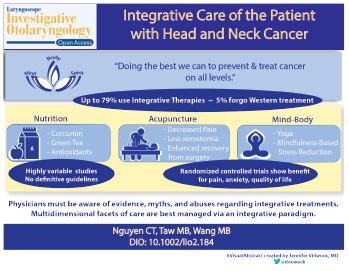
Figure 1. Visual abstracts, like this one created by Jennifer Villwock, MD, for Laryngoscope Investigative Otolaryngology, are well suited for sharing via social media.
“You are not an expert in any of those topics, but in just one minute, I gave you the movie trailer version of each study,” said Dr. Ibrahim, who also published a study on visual abstracts’ utility for disseminating research for a broader audience (Ann Surg. 2017;266:e46-e48). Visual abstracts are found on the Twitter feeds of major academic journals, and they may be linked to PubMed.com soon (see Figure 1).
Explore This Issue
November 2018Dr. Ibrahim, who previously trained in architecture and design, is on the editorial board of Annals of Surgery. In 2016, he launched the visual abstract concept after he was “totally geeked out” by the journal’s paper on London trauma centers. He designed a bold, illustrated yellow slide encapsulating the study’s data. In one week, the visual abstract had 35,000 Twitter impressions, a 17-fold increase from a regular tweet about the same study. Readership of the full article tripled, so the journal staff created 100 more visual abstracts of its published studies in 2017.
More than 75 academic journals now use visual abstracts, along with national health agencies. Search for #VisualAbstract on Twitter to view examples, or go to www.surgeryredesign.com/resources for a free, online, open-sourced primer of visual abstracts and a template for creating your own.
Online Professionalism
Use the same professional judgment on social media that you use offline, said Heather Logghe, MD, surgical research fellow at Thomas Jefferson University in Philadelphia (@LoggheMD) and the co-author of a paper on best practices for surgeons using social media (J Am Coll Surg. 2018;226:317–327).
“Know the rules of your institution” for social media use, including whether yours requires your bio to state that your opinions online are your own, she said. Use the elevator test, she said. “If you wouldn’t be comfortable sharing a tweet or a photo in a crowded hospital elevator, it definitely does not belong online.”
Go beyond HIPAA to safeguard patient confidentiality on social media, she said. Patients or their families may recognize that your tweet refers to their particular case even if you don’t reveal their names.
Even when you discuss controversial topics on social media, try to stay positive, said Dr. Logghe.
“One strategy I follow when tweeting about difficult topics is to avoid putting my own judgment on it,” she said. State the facts, but don’t personally attack people or institutions online. “I encourage you to not stray from the difficult topics. Just because something is controversial doesn’t mean you should avoid it.” Run your tweet’s wording by trusted colleagues before you post it, she suggested.